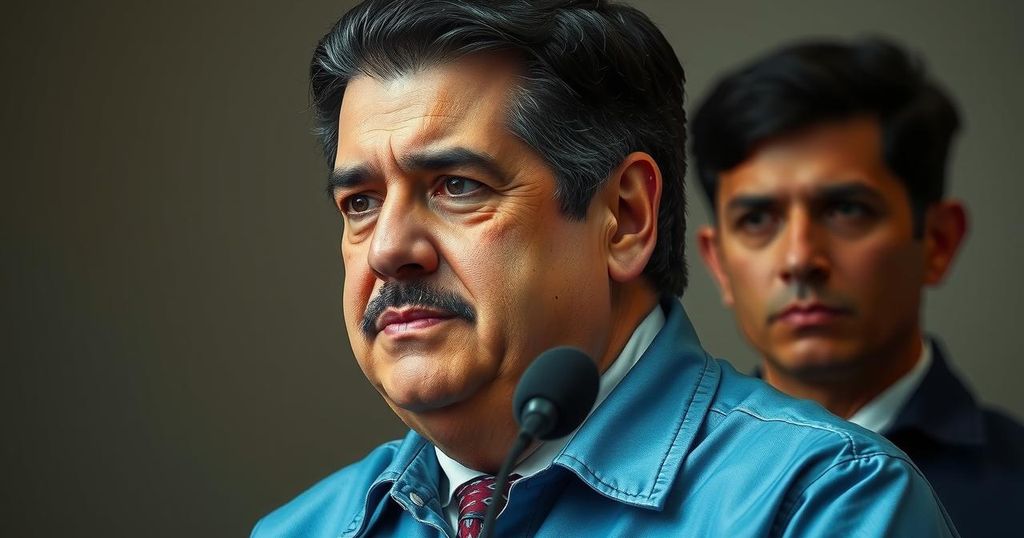The Escalating Repression of Nicolás Maduro’s Regime in Venezuela

Following the July 28 election, where many Venezuelans reportedly rejected Nicolás Maduro, the regime has intensified its oppressive tactics, leading to a climate of fear. Citizens have shifted their focus from discussing the country’s crises to the dangers of state repression. Amidst political turmoil, opposition figures seeking asylum face dire conditions as the government wields their situation disruptively, showcasing the opaque rule under Maduro’s regime.
In Venezuela, a new wave of repression has emerged under President Nicolás Maduro, instilling fear among citizens who are now more cautious in their daily lives. Many have shifted from referring to the deteriorating state of the country as ‘la situación’ to ‘la represión’ after the July 28 election, where a significant portion of the populace reportedly rejected Maduro’s rule. Following a period of unexpected economic leniency, Maduro has clamped down on dissent, imprisoning political activists and suppressing opposition. The authorities have taken measures such as using social media monitoring and home raids to deter even low-profile dissenters from engaging in political discourse.
The situation has intensified for those supporting the opposition, particularly for aides of the popular opposition leader, María Corina Machado, who sought asylum in the Argentine embassy. Their plight highlights the increasing unpredictability of Maduro’s regime, which has escalated its tactics of repression while simultaneously avoiding direct confrontation with Machado. The asylees have become trapped in the embassy under constant surveillance, deprived of basic needs, and utilized as political bargaining chips by the Morales government, which offers to release them under strict conditions. This scenario illustrates the dangerous and opaque reality of political repression in Venezuela, where the lines between safety and danger continue to blur.
Historically, Venezuela has endured severe economic and social challenges, particularly following the death of Hugo Chávez in 2013, leading to mass emigration and increased criminal activity. Under Nicolás Maduro’s rule, repression has taken on a new intensity, particularly against political opponents and dissenters, contributing to a pervasive atmosphere of fear. Following the recent elections, where opposition parties faced systemic barriers and intimidation, the government’s retaliatory measures have become increasingly extreme. Maduro’s administration responds to opposition movements not through open confrontation but through insidious methods of control and punishment, creating a chilling effect on political engagement within the populace.
The state of repression in Venezuela under Nicolás Maduro has evolved into a significant barrier to political dissent and engagement. As citizens grapple with a regime that punishes those who voice their opposition, the implications for the future of democracy in Venezuela become increasingly dire. The plight of political asylees further illustrates the lengths to which Maduro’s government will go to maintain control, revealing a precarious balance between fear and resistance among the populace, while authentic support for opposition leaders remains precariously endangered.
Original Source: www.theatlantic.com







